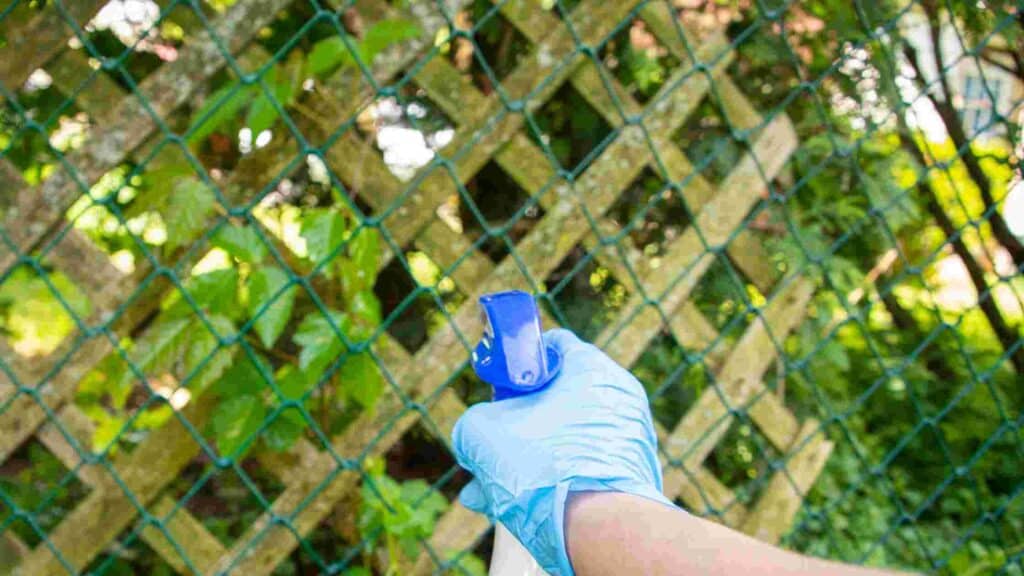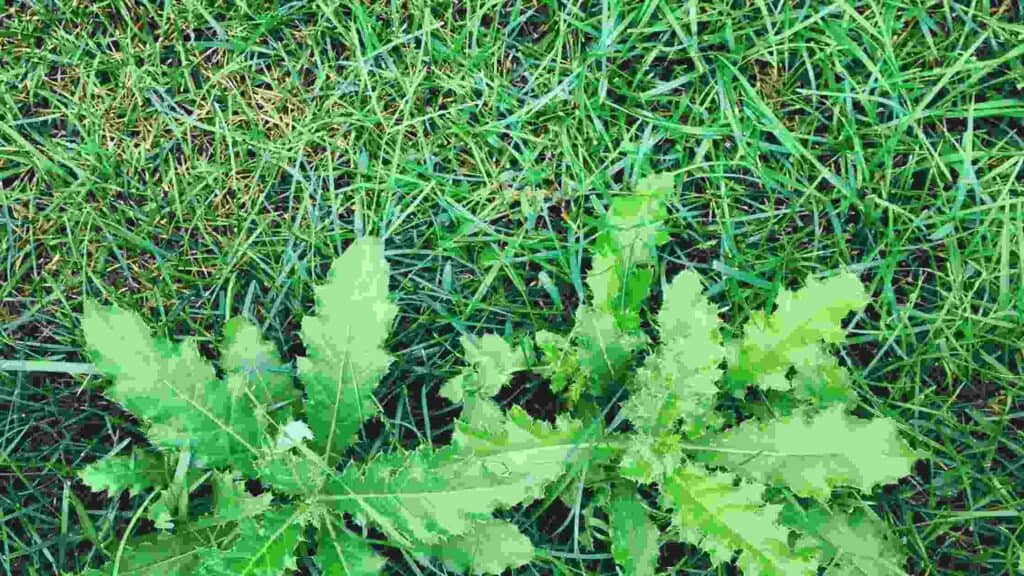In this article, we’re going to talk about an unconventional weed-killing method that might surprise you – using good old salt! Salt can be used as a weed killer, but how long does it take for salt to kill weeds?
We’ll cover some things you need to know before you start sprinkling it all over your garden.
How Long Does It Take For Salt to Kill Weeds?
Remember, patience is key here. It may take up to 10 days before you witness the salt’s effects on those weeds. And yes, weather conditions and the size of the weed do play a role in how well the salt does its job.
Now, here’s the secret to using salt (sodium chloride) effectively. While some weeds might be easier with salt, others might be difficult to tackle.
So, you’ll want to mix the salt with water for maximum impact (if you are curious about Epsom salt, check out the article: does Epsom salt kill weeds?).
The solution lies in interrupting the weed’s growth cycle. Once the salt weed killer is applied, the plant takes it up eagerly. This leads to the weed retaining more water than it can handle, eventually causing it to wilt and go away.
Benefits Of Using Salt
When it comes to controlling weeds on a small scale, salt can be your budget-friendly, environmentally-conscious option.
One of its major perks is its easy availability. No need to spend money on expensive herbicides; just head to your kitchen pantry or local store to grab some salt.
How Much Salt Does It Take To Kill Weeds?

Creating your own salt weed killer is easy. Grab some rock salt or table salt and dissolve it in hot water. Start with a milder mixture and gradually increase the salt dosage until you see those weeds getting affected.
Combine vinegar and salt for an even more potent effect. Take 1 cup of table salt, mix it with 4 cups of white vinegar, and add ½ teaspoon of dish soap (opt for one without degreaser, fragrance, or bleach).
The dish soap works wonders by making the liquid stick to the plant instead of just rolling off. This speeds up the plant’s absorption of salt, ensuring a quicker and more efficient process.
Killing Weeds With Salt And Vinegar
When your solution is ready, fill up a clean spray bottle with your mixture, setting it to stream mode instead of spray or mist. This way, you get better control over where the liquid lands.
Wait for a day with hot temperatures and thoroughly coat those defiant weeds with your solution. For best results, repeat this process once a day, targeting the hottest part of the day, until those weeds turn brown, and wilt away.
Now that you’re armed with the knowledge of using salt or the salt and vinegar combo to combat weeds, it’s time to talk about the flip side.
Sure, salt and vinegar can be effective when it comes to removing those weeds from gravel drives, paths, and walkway crevices.
But here’s the deal – if you apply this combo to the soil, there could be some side effects. That spot will turn into a barren wasteland, where nothing dares to grow again (here’s how to kill grass and weeds).
The Hazards Of Overuse: Salt vs Concrete And Paving
Here’s a little heads up – too much salt can have some unintended consequences, especially on concrete and paving materials.
If you go overboard and use salt repeatedly on your paving, it might start showing signs of wear and tear (find out what to put under rocks to prevent weeds).
When it rains, there’s a chance that some of the salt solutions could run off onto other areas, including your planted zones. So, while salt can be powerful, you’ve got to handle it with care to avoid collateral damage.
Will Salt Kill Weeds Permanently?

Salt as a weed killer might not be a flawless solution. While it’s pretty effective at eliminating the top layer of those offending weeds, the results are far from permanent.
You’ll be able to enjoy a weed-free lawn for about 3-4 weeks, but then those sprouts might rear their heads again. With time, their appearance will be lower.
But here’s a word of caution – be mindful of where you apply the salt. It’s not very selective, so you could end up accidentally taking out some of the plants you actually want to keep.
When facing large weeds, salt might not be as effective in removing them. You don’t want to go all-in with excessive amounts of salt; it’s just not worth it.
Moreover, applying a salt solution to your lawn is not a good idea, as it may lead to detrimental consequences for the lush green carpet you have diligently nurtured.
FAQs
1. Can I sprinkle table salt to kill weeds?
Yes, you can use table salt to kill weeds, but it may also harm other plants and negatively impact the soil.
2. How long does salt stay in soil?
Salt can stay in the soil for an extended period, potentially years, depending on factors like soil type, rainfall, and leaching.
3. Do you recommend using salt to kill weeds in gravel?
Using salt to kill weeds in gravel can be effective, but it may also cause long-term damage to the soil and surrounding plants.
4. Does salt kill weeds in block paving?
Salt can kill weeds in block paving, but it may also damage the paving material and affect nearby vegetation.
5. Does table salt kill plants?
Yes, table salt can kill plants if applied in sufficient quantities, as it dehydrates and disrupts their cellular functions.
6. What is the best rock salt for killing weeds?
The best rock salt for killing weeds is plain sodium chloride, commonly known as table salt. However, using rock salt to control weeds can have negative impacts on the environment and soil health, so it’s essential to consider alternative, eco-friendly methods for weed control.
7. How to salt the earth so nothing grows?
In order to salt the earth, you should evenly distribute salt over the soil and allow it to remain undisturbed for a few months until all organic matter has been eliminated.
Conclusion: How Long Does It Take For Salt to Kill Weeds?
It may take up to 10 days before you witness the salt’s effects on those weeds.
Using salt as a weed killer can be a viable and cost-effective alternative to chemical sprays (find out the best weed killer for lawns). Its availability, ease of use, and eco-friendliness make it an attractive option for small-scale weed control. By mixing salt with water, you can enhance its effectiveness in tackling different types of weeds.
While salt can provide temporary relief from weed infestations, it may not be a permanent solution. Regular spot treatments may be required to keep those pesky weeds at bay.
Large weeds may also prove more resilient to salt’s effects, warranting alternative methods for their removal (check out how to fix a lawn full of weeds).
By following proper application techniques and monitoring the impact, you can harness salt’s power to create a weed-free haven in your garden. Happy gardening!
